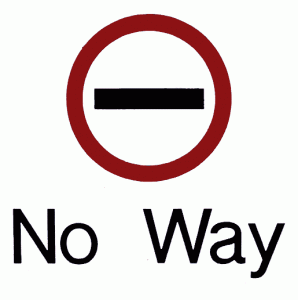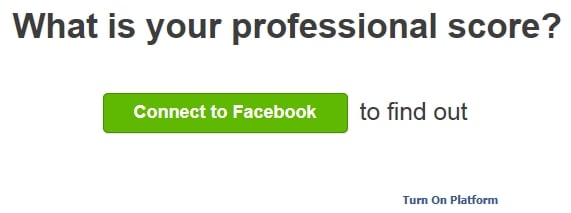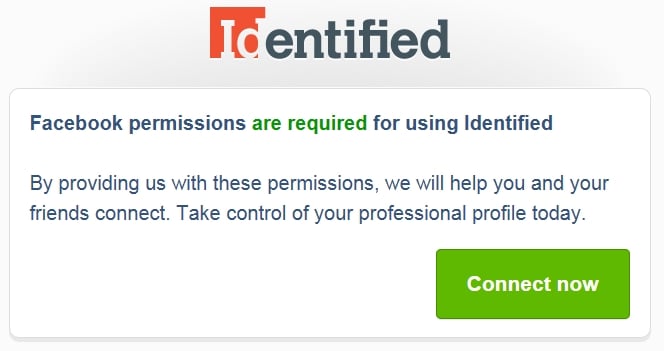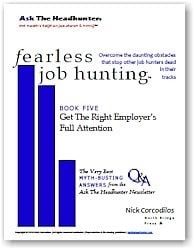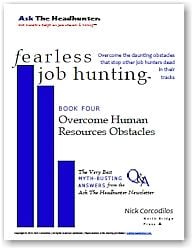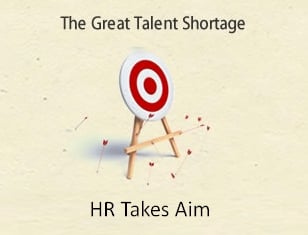In the July 17, 2012 Ask The Headhunter Newsletter, a manager complains that Human Resources (HR) departments are behind the talent shortage:
I don’t have a question, but I want to share stories about two candidates that I interviewed. (I am a manager.)
I am continually astounded at the kinds of idiotic discrimination I see companies engage in when they’re hiring. This simply confirms my suspicions that bad HR managers are a major impediment to good candidates getting good jobs.
I’ve been to job fairs where companies tape up signs saying “U.S. Citizenship Required” and “Must Speak English.” This puts me in mind of the “Irish need not apply” and “No Blacks” of earlier years. There are very few jobs that genuinely require citizenship (as opposed to employment authorization) and I’ve found precious few on this side of the Atlantic who come close to speaking proper English!
At my company, HR often turns away good candidates for reasons just as ludicrous as those signs. This is what happened to two people I interviewed. HR ignored both of them as “unhireable.”
One candidate had a Chinese accent so thick that I had difficulty understanding anything she said. During the interview I resorted to asking her to write or draw in order to assist communication. I saw strong technical skills through the language problems that this new immigrant had and I made the offer.
Another candidate was so nervous that he completely messed up most of the questions in the first half of the interview. I persevered, put him at ease and satisfied myself that he was technically able. I hired him, too.
Both these people have been stunning performers in my company. The Chinese candidate has improved her language skills to the point where communication is no longer a challenge. The formerly nervous candidate has gained confidence. The only downside is that either candidate could now go elsewhere and breeze through interviews with the sort of lame-brains who (I believe) routinely pass up good candidates because it takes a bit of extra effort to get to know them.
The moral of this story is, if you are a candidate, try to talk to managers, not HR. If you are the solution, prove it. If you are a manager, try to get at the candidates before HR filters out all the good ones. If you are a recruiter, drop the dumb prejudices! There is no talent shortage, just a shortage of good hiring practices and patience!
My Advice
I could kiss you. Thanks for the reality check. Employers are losing great candidates due to crappy judgments about who is worth interviewing and hiring.
I haven’t seen the sort of signs you refer to, but then again, I haven’t been to a job fair in a long time. However, I have seen good job candidates passed over by corporate representatives who had no skin in the game. That is, they weren’t hiring managers. It’s amazing, isn’t it, that a good hiring manager will dig a bit deeper to get to know a candidate than an HR manager might — because the manager needs to fill a job.
Do HR workers, in general, discriminate? Are they lazy? Your stories raise these provocative questions, and you deliver a sharp message: Companies do themselves a disservice when they keep the hiring manager at arm’s length from the hiring process.
Today HR uses software to filter candidates before any human judgment is brought to bear. The result is that excellent prospects are denied before the hiring manager even knows they exist. Why does HR do this?
HR’s answer is just as dumb as it sounds: HR has so many applicants that it has no choice but to use software to filter them!
And my rejoinder reveals just how stupidly HR behaves: HR created the problem itself! Where do you think all those tons of applicants suddenly came from? HR posts jobs and solicits any and all applicants — then complains it’s got too many?
For $50 I’ll give any HR department the solution: Stop posting jobs and soliciting millions of resumes. More is not better — so stop with the stupid excuses already. End the problem of “more applicants than we can handle.” If too many are applying, you’re not doing your job. The point is to use methods that attract the right candidates — not tons of candidates!
And here’s the rest of the solution: HR should handle the administrative process of getting new hires on board, but HR should get out of the business of recruiting, selection, interviewing, and hiring. That’s for managers – those who have skin in the game.
You didn’t ask a question, but there’s lots to learn from what you had to say. I hope employers (and job hunters) see the lessons in it.
Both managers and job hunters need to get down to brass tacks: Talk about how to do the job profitably. In How Can I Change Careers? (or jobs) is a simple method for preparing for interviews so you can prove to a manager that you’re worth hiring. It’s not difficult for managers to set up an interview to ensure the candidate will have a chance to show what they can do — so the manager can make a sound hiring decision as quickly as possible.
If you’re a manager, have you ever missed out on good hires due to HR’s “filtering” process? How do you find your new hires? If you’re a job hunter, how do you get past the HR meat grinder so you can actually talk to the hiring manager?
: :



